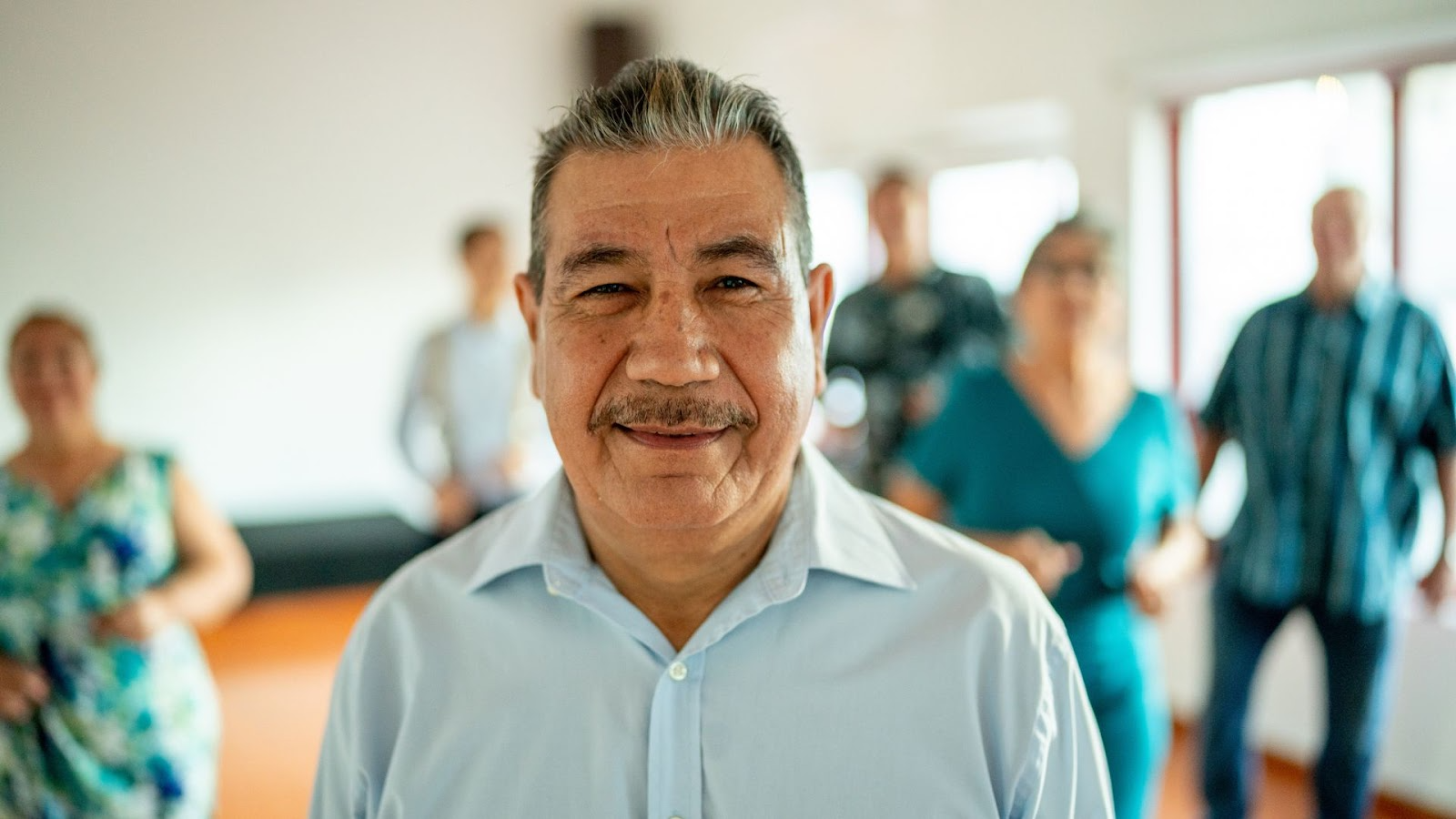Money
If you feel unsure about retirement, you’re not alone – new research

New AMP research reveals that Aussies are more anxious than assured about life after work. We unpack the insights and consider what we can do to feel more confident.
By Bron Maxabella
Australians aren’t feeling particularly confident about their financial future. In fact, a new national barometer Retirement Confidence Pulse, launched by AMP, has given us a score of just 50 out of 100. A straight pass mark at best, but hardly the level of confidence you’d want to carry into retirement.
The research, which surveyed 2,000 Australians, highlights who feels least secure about retirement and why. AMP’s chief executive Alexis George calls it a “national wake up call”: “[Despite] national wealth, a maturing super system and growing balances… too many don’t have financial peace of mind about their retirement. We want this issue to remain front and centre – shine a light on how Australians really feel, and ensure industry and government focus our energy where it's most needed,” she said.
While these findings are sobering, they also show where we can focus to give ourselves a better shot at enjoying life after work. Let’s unpack what the research revealed and the adjustments you might consider if you’re in the same boat.
The sandwich generation is struggling
Australians in their 40s are the least confident about retirement, with fewer than 2 in 5 feeling secure. This is the classic “sandwich generation,” juggling mortgages, older or adult kids and often caring for ageing parents as well. It’s exhausting – financially and emotionally.
If you’re in this stage, focus on getting clarity about your own future and where it fits with your plans for your children and parents. Map out your current super balance and use a retirement calculator to project where you’re headed. Even if the picture isn’t rosy (yet), having the numbers in front of you means you can start planning to improve things.
Start here: 5 steps to make a retirement plan in less than an hour
But parents feel more confident than non-parents
One surprise finding was that parents felt significantly more confident about retirement (over half) than those without kids (2 in 5). Potentially, parents are more likely to have planned ahead than non-parents (given how growing children are a daily reminder of how quickly the years go by). Perhaps they are also better used to making finances stretch and prioritising longer-term goals over short-term spending. Or perhaps they’re simply hoping the kids will repay the favour and support them in later life?
Either way, this is a reminder that confidence is about perception as much as reality and how important mindset is in shaping how secure we feel.
Income is a big divider
No spoiler alert here: how confident you feel about retirement rises in line with income – 3 out of 4 Australians earning $190,000-$250,000 feel good about retirement, compared with just 2 in 5 earning under $45,000. Interestingly, the “squeezed middle” of $45,000-$135,000 weren’t faring much better than the low income earners, with only half feeling secure.
For all income earners, good money management in the pre-retirement years can make a world of difference later. Review your budget to find small savings that can be redirected into super, take advantage of tax-effective salary sacrificing, and don’t overlook the power of compound interest when you’ve still got a decade or 2 of work left.
Women are still behind
Only 2 in 5 women feel confident about retirement, compared with nearly 3 in 5 men. The gender pay gap, time out of the workforce to raise children and the financial impact of divorce all add up to significantly less super and fewer savings for women.
If this is you, it’s worth checking whether you can top up your super through spouse contributions, government co-contributions or personal contributions. Even small amounts added regularly can make a big difference over time. You can also talk to your super fund about recommended investment strategies to further close the gap.

Divorce dents security, especially for women
Divorce often leads to a significant reduction in wealth, particularly for women. Only 3 in 10 separated or divorced women feel confident about retirement, compared with more than half of separated or divorced men.
If you’re rebuilding after separation, it’s a good idea to seek advice on how super is split and make sure any entitlements are properly transferred into your account. Even later in life, there are ways to rebuild – like making catch-up concessional contributions if you haven’t used your full caps in previous years.
More on this: Get in the black after a grey divorce
Retirement jitters don’t vanish at 65
You might think retirement confidence kicks in once you finally stop working, but more than 1 in 3 Australians over 65 still feel financially insecure. Possibly because they worry (probably unnecessarily) that their savings won’t last.
A useful approach here is to explore retirement income products that provide more certainty, like account-based pensions or annuities that pay an income for life. There are also other income sources that are worth exploring, like the Age Pension, a transition-to-retirement strategy, accessing home equity or even continuing to work part time long beyond age 65.
Couples are more confident than singles
This one is probably not much of a surprise, but 3 in 5 partnered Australians feel confident about retirement, compared with just 2 in 5 singles. The so-called “confidence dividend” of coupledom makes sense – 2 incomes, shared housing costs and the psychological comfort of going through it together.
If you’re single, it’s even more important to build financial resilience as you get older. That might mean downsizing earlier (you can claim the downsizer bonus as early as age 55), boosting super through salary sacrifice, or seeking professional advice tailored to single retirees.
Job insecurity in midlife takes its toll
The Pulse found that jobseekers in their 40s recorded the deepest financial concerns, with just over 1 in 10 feeling confident about retirement. That’s understandable when income is patchy or uncertain, especially in later life when it can take longer to find a new job.
If this is you, consider how retraining or upskilling could improve your long-term prospects. Even short courses can open up new opportunities and provide confidence that your earning capacity will carry you through to retirement age.
For those aged 60 and over, you may be able to start a transition-to-retirement pension. This lets you draw between 4% and 10% of your super each year while you’re still looking for or doing part-time work. Talk to your super fund to see if you’re eligible.
Turning evidence into action
Whatever your own retirement confidence levels are, the Retirement Confidence Pulse is a wake-up call for many of us. AMP plans to release the report annually and they’ve launched a Retirement Confidence Hub to push for reforms that make the superannuation system easier to navigate.
In the meantime, there’s also plenty we can do as individuals. Get to know your super, use the calculators and resources available, seek guidance when you need it and start making small but consistent moves to shore up your future.
Retirement shouldn’t feel like a cliff edge you’re not ready for – we all know it’s coming. With the right steps today, we can front up to the edge and simply enjoy the views.
You can start here, right now:
Feature image: iStock/FG Trade Latin
Tell us in the comments below: Do you find knowing you're 'not alone' more reassuring or worrying?

More on retiring with confidence:
